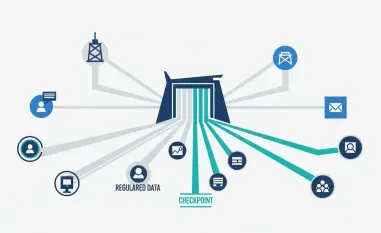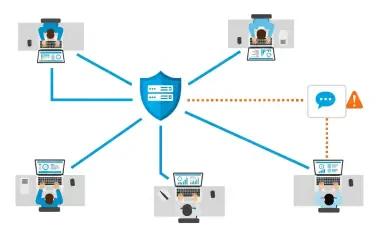What happens when a single click drains a family’s life savings? Across Africa, nearly 88,000 individuals faced this devastating reality, ensnared by cunning online scams and digital attacks that have become a growing menace. This staggering figure is not just a statistic—it’s a wake-up call to the rampant growth of cybercrime sweeping the continent. Interpol’s Operation Serengeti 2.0, a sweeping multinational crackdown, emerged as a powerful response to this escalating threat, targeting the shadowy networks behind these crimes. This feature dives into the heart of a landmark operation that spanned continents, revealing the scale of the battle against digital fraud and its profound impact on lives and economies.
The significance of this operation cannot be overstated. Cybercrime in Africa is not a distant problem—it’s a global crisis that undermines economic stability and personal security worldwide. With losses reaching into the hundreds of millions and scams evolving at a breakneck pace, Serengeti 2.0 represents a critical step toward curbing this epidemic. Beyond the arrests and financial recoveries, the operation highlights the urgent need for international collaboration and innovative strategies to protect vulnerable populations from increasingly sophisticated threats.
Unveiling the Digital Danger: Cybercrime’s Grip on Africa
The scale of cybercrime in Africa paints a grim picture of vulnerability and loss. From phishing schemes to ransomware attacks, criminals exploit gaps in digital literacy and security infrastructure, targeting individuals and businesses alike. Reports indicate that nearly 88,000 victims have been directly affected, with many losing their entire savings to scams promising quick riches or fake inheritances. This pervasive threat not only devastates personal finances but also erodes trust in digital systems across the continent.
Beyond individual impact, the economic toll is staggering. Annual losses from cybercrime in African nations are estimated to be in the hundreds of millions, hampering growth in regions already grappling with developmental challenges. Small businesses, often lacking robust cybersecurity, become easy prey, while national economies suffer from diminished investor confidence. The ripple effects extend far beyond borders, making this a pressing concern for the global community.
A Global Crisis: Why African Cybercrime Matters to Everyone
The rapid expansion of internet access in Africa, while a boon for connectivity, has also opened the door to unprecedented levels of digital crime. Many regions lack the resources or infrastructure to combat sophisticated attacks, creating fertile ground for fraudsters operating across international lines. Scams like cryptocurrency fraud and investment hoaxes drain resources not just locally but also from victims worldwide, linking African cybercrime to broader issues of international security.
This borderless nature of digital crime demands a unified response. Economic stability in African nations is intricately tied to global markets, meaning that unchecked cybercrime can disrupt trade and financial systems everywhere. Operation Serengeti 2.0 underscores the importance of addressing these challenges collectively, as no single country can tackle the issue in isolation. The operation’s scope reveals how interconnected the fight against cybercrime has become, urging nations to prioritize shared solutions.
Behind the Operation: Serengeti 2.0’s Major Wins and Targets
Spanning from June to October in a recent collaborative effort, Operation Serengeti 2.0 united law enforcement from 18 African countries and the United Kingdom in a bold assault on cybercriminal networks. The results were striking: 1,209 alleged cybercriminals arrested, $97.4 million recovered, and 11,432 malicious digital infrastructures disrupted. These numbers reflect a significant blow to organized digital crime, showcasing the power of coordinated action across diverse regions.
Specific victories highlight the operation’s depth and reach. In Angola, authorities shut down 25 illegal cryptocurrency mining centers operated by 60 Chinese nationals, seizing $37 million in equipment alongside 45 unauthorized power stations. Meanwhile, Zambia dismantled a scam center tied to human trafficking and uncovered a $300 million investment fraud that deceived 65,000 victims with false promises of high returns. Côte d’Ivoire also made headlines by busting a transnational inheritance scam originating from Germany, recovering $1.6 million in assets, including cash and electronics, demonstrating the varied and complex nature of crimes tackled.
On the Ground: Perspectives from the Cybercrime Battlefront
The fight against cybercrime is a relentless race against innovation, as criminals continuously adapt to evade capture. A senior Interpol official involved in Serengeti 2.0 remarked, “These networks evolve faster than many systems can counter, requiring constant vigilance and new approaches.” This insight captures the dynamic challenge faced by law enforcement, where staying ahead means anticipating the next wave of digital deception before it strikes.
Accounts from officers in participating countries shed light on the human toll of these crimes. In Zambia, investigators described the heartbreak of victims who lost everything to fraudulent investment apps, often lured by promises of financial freedom. Meanwhile, in Côte d’Ivoire, the persistence of traditional scams like inheritance fraud—despite years of awareness efforts—reveals the difficulty of changing public behavior. These stories, paired with data showing the resurgence of old tricks alongside new threats like crypto mining, illustrate the multifaceted struggle to secure the digital landscape.
Fortifying the Future: Key Takeaways for Cyber Defense
While the successes of Serengeti 2.0 are undeniable, arrests and asset seizures alone cannot halt the tide of cybercrime. Governments and organizations must prioritize education, launching targeted campaigns to inform citizens about common scams and warning signs. Empowering individuals with knowledge is a crucial first step in building a resilient defense against digital fraud, especially in communities with limited access to cybersecurity resources.
Equally vital is the modernization of law enforcement capabilities. Investing in advanced tools and specialized training enables authorities to match the sophistication of cybercriminal tactics, which often leverage cutting-edge technology. International partnerships, as exemplified by Serengeti 2.0, also play a pivotal role, ensuring that resources and intelligence are shared to combat crimes that know no borders. These strategies collectively form a roadmap for stronger, safer digital environments across Africa and beyond.
Reflecting on a Milestone Effort
Looking back, Operation Serengeti 2.0 stood as a defining moment in the battle against African cybercrime, delivering unprecedented arrests and financial recoveries. The collaborative spirit of 18 African nations and the United Kingdom set a powerful precedent for tackling a borderless threat. Yet, the operation also exposed the daunting adaptability of cybercriminals, who continued to innovate even as networks were dismantled.
Moving forward, the focus must shift to prevention and preparedness. Governments should commit to sustained investments in cybersecurity infrastructure, while international alliances need to deepen to address emerging threats. Public awareness must be elevated through accessible education initiatives, ensuring that individuals are equipped to spot and avoid digital traps. This historic effort marked a significant stride, but the path ahead demands persistent, collective action to safeguard the digital future.













